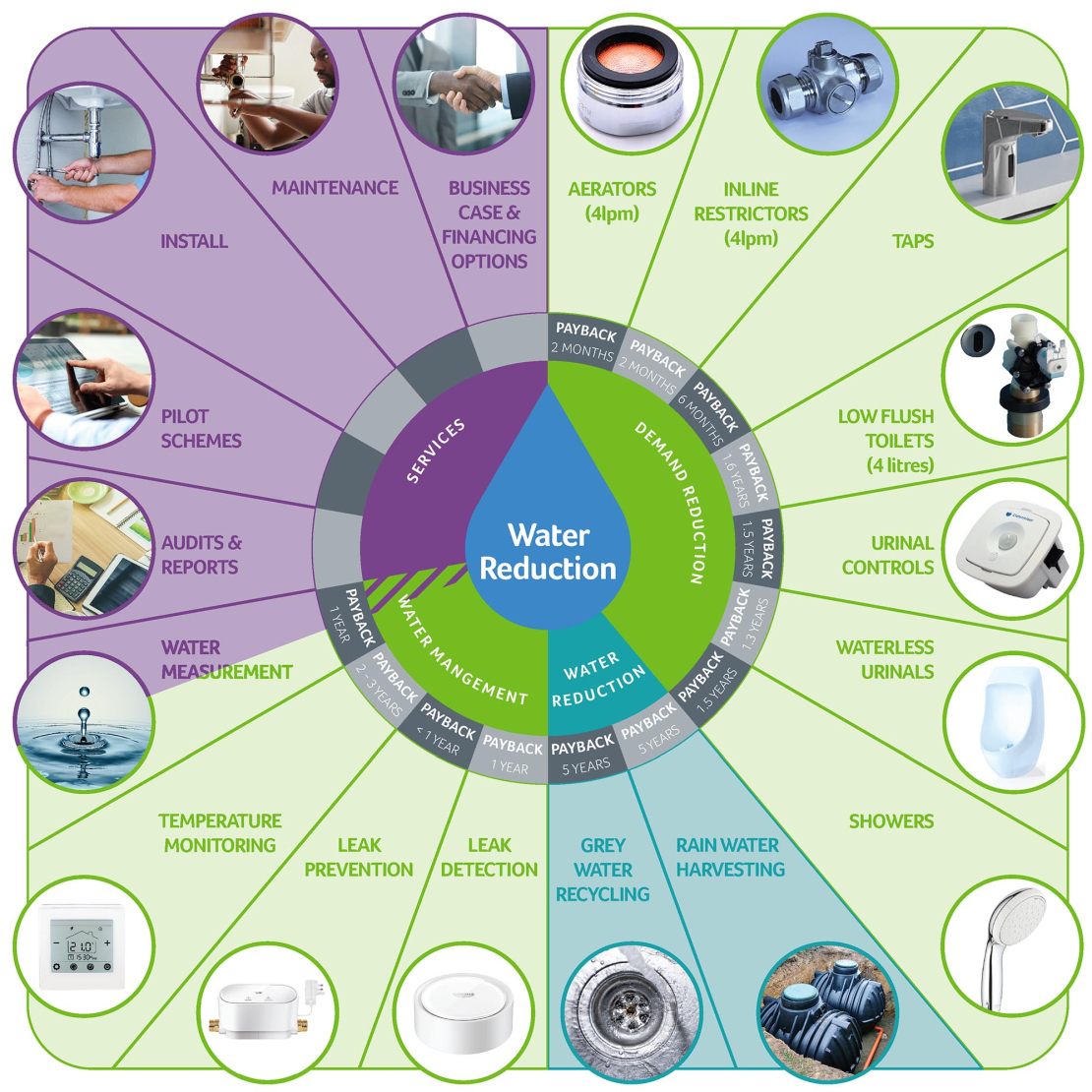Do you really know how much water you’re using in your building?
Get in touch now to learn how we can help you reduce water use in your building.
Reducing Water & Waste
The demand for water in the UK increases each year and water retailers are struggling to keep pace. Legislation over the coming years will nudge businesses and water companies to take reasonable steps to reduce their water demand and prevent water waste.
A significant amount of business premises in the UK have old water management systems that utilise water inefficiently and cause waste. Research from Waterwise reports that between 5 – 8% of toilets in commercial buildings are leaking at any given time, with a leaking toilet wasting on average 300 litres of clean drinking water a year! Old urinal cisterns flush water several times an hour, every day of the year. A 5 litre urinal cistern flushing 4 times an hour per day will waste 175,000 litres of clean drinking water per year – regardless of how many people use it.
Water & Carbon
The water supplied to buildings is produced using processing methods that utilise energy. As a result, each litre of water produced has indirectly utilised energy and generated carbon emissions. This use of carbon is called embodied carbon, a term used to describe the carbon footprint of a material across its supply chain – from production to distribution.
On April 1st 2019, the Streamlined Energy and Carbon Reporting (SECR) policy came into effect in the UK, requiring business to annually disclose information on their carbon and energy usage. Water is classed as a scope 3 emission. The heating of water inside a building via the use of purchased energy is classed as a scope 2 emission. For example, gas or electric boilers that heat water and circulate around the building.
Our Washroom Saving Solutions
SaveMoneyCutCarbon’s network of trusted brands enable us to deliver savings on all the major appliances in the washroom:


Water Saving Audit & Desk Top Assessment
Our Water Saving Audit looks at how your building consumes and wastes water, and what activities can be done to reduce or prevent waste.
Part of the audit involves the technician installing ‘quick fix’ water-saving products on the day to taps, toilets and showers. Immediately we make a difference, kick-starting your savings journey.
You will get a simple and professional audit report that gives you a snapshot of where you are with water in your building.
Our audit looks at current water usage from, taps, showers, toilets and urinals and how much they are costing you. We will help to identify how to reduce usage and associated investment costs.
We also take a gentle look at energy usage and offer possible improvement areas like, Solar generation, LED Lighting, Hand Dryers and EV Charging options. We then book in a 30 minutes consultation post-survey to discuss the report and next steps.
One-Stop Solution
At SaveMoneyCutCarbon, we offer a full turnkey solution for all your water and washroom needs.
Our team of experts provide complete project management services, from conducting energy surveys, audits & analysis to specifying & installing the best products and monitoring capabilities.
With extensive experience in the water and bathroom market, we have successfully completed projects nationwide for various commercial clients, across a wide range of industries.
The Water Reduction team also carries out all aspects of water and washroom maintenance ranging from reactive maintenance through to servicing and planned preventative maintenance (PPM).
Our end-to-end service
- Consultation
- Audits and financial modelling
- Feasibility studies and pilot projects
- Business case development and impact statements
- Project specification
- Project installation
- Reactive maintenance
- Maintenance and service agreements
- Compliance




